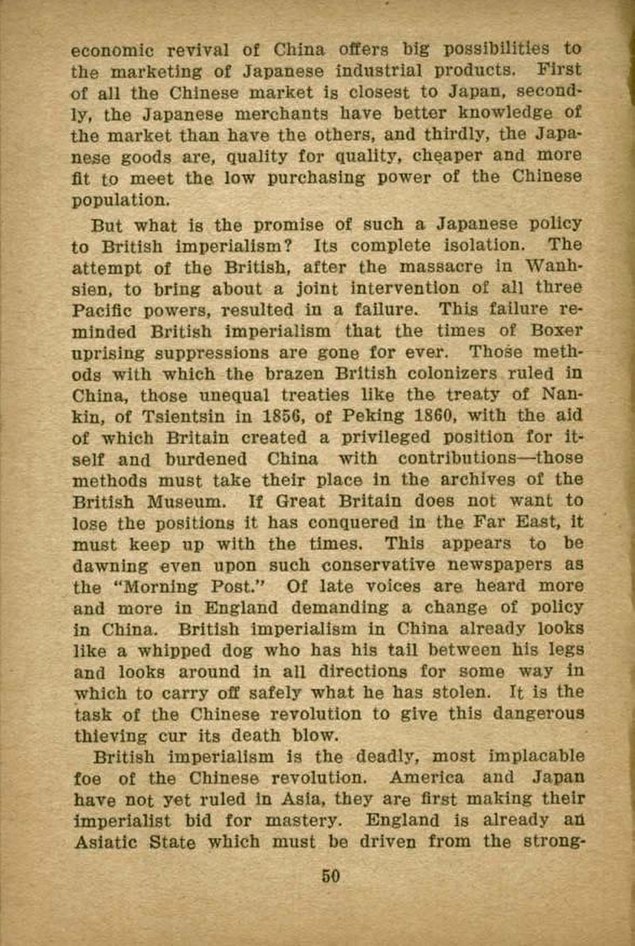economic revival of China offers big possibilities to the marketing of Japanese industrial products. First of all the Chinese market is closest to Japan, secondly, the Japanese merchants have better knowledge of the market than have the others, and thirdly, the Japanese goods are, quality for quality, cheaper and more fit to meet the low purchasing power of the Chinese population.
But what is the promise of such a Japanese policy to British imperialism? Its complete isolation. The attempt of the British, after the massacre in Wanhsien, to bring about a joint intervention of all three Pacific powers, resulted in a failure. This failure reminded British imperialism that the times of Boxer uprising suppressions are gone for ever. Those methods with which the brazen British colonizers ruled in China, those unequal treaties like the treaty of Nankin, of Tsientsin in 1856, of Peking 1860, with the aid of which Britain created a privileged position for itself and burdened China with contributions—those methods must take their place in the archives of the British Museum. If Great Britain does not want to lose the positions it has conquered in the Far East, it must keep up with the times. This appears to be dawning even upon such conservative newspapers as the "Morning Post." Of late voices are heard more and more in England demanding a change of policy in China. British imperialism in China already looks like a whipped dog who has his tail between his legs and looks around in all directions for some way in which to carry off safely what he has stolen. It is the task of the Chinese revolution to give this dangerous thieving cur its death blow.
British imperialism is the deadly, most implacable foe of the Chinese revolution. America and Japan have not yet ruled in Asia, they are first making their imperialist bid for mastery. England is already an Asiatic State which must be driven from the strong-
50
